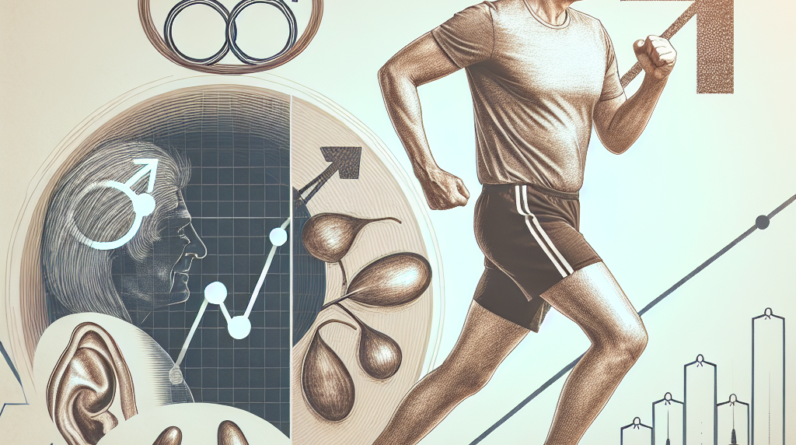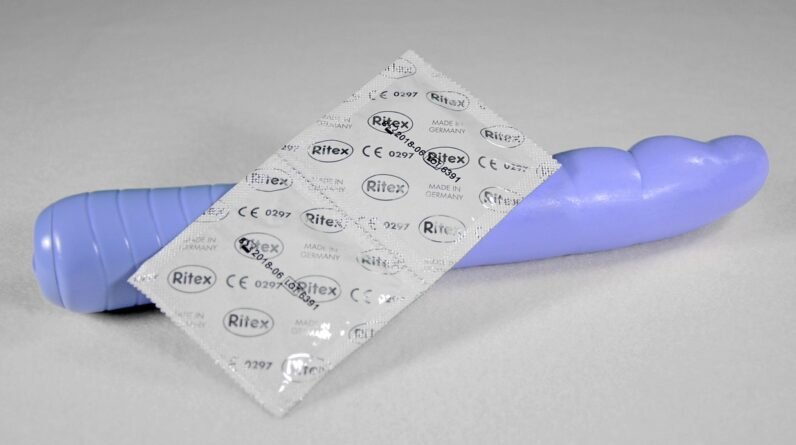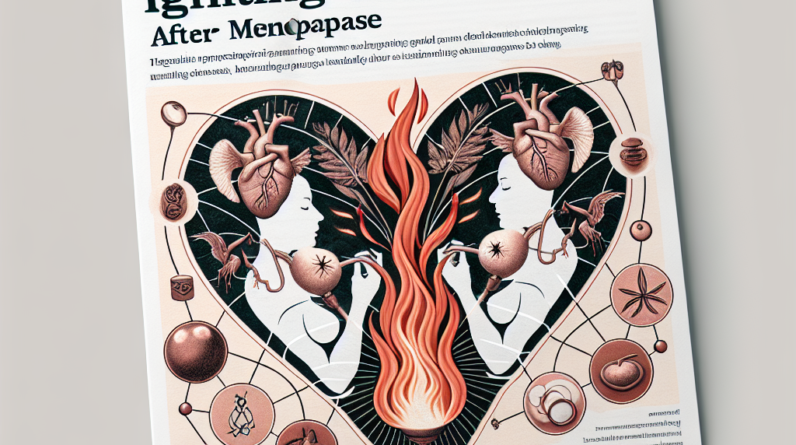
Ever wondered what hormone could be responsible for increasing sex drive in females? Well, look no further! In this article, we will explore the intriguing topic of the hormone that plays a significant role in boosting the sex drive of women. And it’s not just about the younger years – we will also touch upon how this hormone can contribute to a fulfilling sex life even during older age and after menopause. So, sit back, relax, and get ready to dive into the fascinating world of female sex drive and the hormone behind it all.
Factors Affecting Female Sex Drive
Female sex drive can be influenced by various factors, both physical and psychological. Understanding these factors is essential in addressing and enhancing sexual desire and satisfaction. In this article, we will explore the role of hormones, such as estrogen, progesterone, and testosterone, in female sex drive. We will also discuss the impact of menopause on sex drive and the potential benefits and risks of hormone replacement therapy. Additionally, we will explore natural ways to boost female sex drive and when it may be beneficial to seek professional help.
Physical Factors
Several physical factors can impact female sex drive. These may include hormonal imbalances, chronic illness, certain medications, and physical discomfort during intercourse. Hormonal imbalances, such as low levels of estrogen or testosterone, can contribute to a decrease in sexual desire. Chronic illnesses, such as diabetes or cardiovascular disease, can affect blood flow and overall energy levels, potentially impacting sexual desire. Certain medications, such as antidepressants or hormonal contraceptives, may also affect libido. Additionally, conditions like vaginal dryness or pain during intercourse can decrease sexual pleasure and desire. Addressing these physical factors through appropriate medical intervention or lifestyle adjustments can help improve female sex drive.

Psychological Factors
Psychological factors play a significant role in female sex drive. These may include stress, anxiety, depression, body image concerns, relationship problems, and past traumas. High levels of stress, whether due to work pressures or personal issues, can impair sexual desire and enjoyment. Anxiety and depression may also negatively impact libido. Body image concerns and low self-esteem can contribute to a decrease in sexual confidence and desire. Relationship problems, such as conflicts or communication issues, can affect intimacy and sexual desire. Finally, past traumas, such as sexual abuse, can have long-lasting effects on a woman’s sexuality. Addressing these psychological factors through therapy, counseling, or self-help techniques can help improve female sex drive.
Hormonal Influence on Female Sex Drive
Hormones play a crucial role in female sex drive. Estrogen, progesterone, and testosterone are the primary hormones involved in regulating sexual desire.
Role of Estrogen
Estrogen is primarily responsible for the development and function of female reproductive organs. It also plays a significant role in sexual desire and arousal. During the reproductive years, the levels of estrogen fluctuate throughout the menstrual cycle, with higher levels during the follicular phase. Estrogen helps maintain healthy vaginal tissue, promoting lubrication and preventing discomfort during sexual activity. It also contributes to the production of natural lubricants and enhances blood flow to the genital area, promoting sexual pleasure.
Role of Progesterone
Progesterone is another hormone that influences female sex drive. It is primarily involved in preparing the uterus for pregnancy and maintaining pregnancy. Progesterone levels tend to be higher during the luteal phase of the menstrual cycle. While progesterone itself may not directly increase sexual desire, it can have an indirect effect by supporting overall hormonal balance. Imbalances in progesterone levels can lead to mood swings or other symptoms that can impact sex drive.
Role of Testosterone
Testosterone, often considered a male hormone, also plays a role in female sex drive. While women have lower levels of testosterone compared to men, it still contributes to their sexual desire and satisfaction. Testosterone helps maintain healthy muscle mass, bone density, and overall energy levels. Low levels of testosterone in women can lead to a decrease in sexual desire, fatigue, and a diminished sense of well-being. Balancing testosterone levels can help improve female sex drive.

Estrogen and Female Sex Drive
Estrogen production in females primarily occurs in the ovaries. It is also produced in smaller amounts by the adrenal glands and fat tissues. During puberty, estrogen levels increase, contributing to the development of secondary sexual characteristics and the onset of menstruation. Throughout the reproductive years, estrogen levels fluctuate during the menstrual cycle, with higher levels during the follicular phase. Estrogen helps maintain vaginal health, promotes natural lubrication, and enhances blood flow to the genital area, all of which can positively impact sexual desire and pleasure. However, fluctuations or imbalances in estrogen levels, such as those during menopause, can lead to a decline in sexual desire.
Progesterone and Female Sex Drive
Progesterone production primarily occurs in the ovaries during the luteal phase of the menstrual cycle. Its levels increase after ovulation, preparing the uterus for potential pregnancy. While progesterone itself may not directly increase sexual desire, maintaining a balance between estrogen and progesterone is essential for overall hormonal harmony. Imbalances in progesterone levels can lead to symptoms like mood swings, irritability, and decreased sexual desire. Addressing these imbalances through appropriate medical intervention or natural remedies can help improve female sex drive.
Testosterone and Female Sex Drive
Testosterone is often associated with male sex drive, but it also plays a crucial role in female sexual desire and satisfaction. Women have lower levels of testosterone compared to men, but it still contributes to their overall well-being. Testosterone helps maintain muscle mass, bone density, and energy levels. It enhances libido, promotes sexual pleasure, and contributes to the formation of sexual fantasies. Low levels of testosterone in women can lead to a decrease in sexual desire, fatigue, and a sense of diminished well-being. Addressing testosterone imbalances, such as through hormone replacement therapy, can help improve female sex drive.
Other Hormonal Factors
While estrogen, progesterone, and testosterone are the primary hormones influencing female sex drive, other hormones also play a role. Prolactin, often associated with milk production in breastfeeding women, can impact sexual desire. High levels of prolactin may lead to a decrease in libido. Oxytocin, known as the “love hormone,” plays a role in bonding and intimacy. It can enhance sexual pleasure and contribute to feelings of connection during sexual activity.
Impact of Menopause on Sex Drive
Menopause is a natural stage in a woman’s life when her menstrual cycle and reproductive capacity come to an end. It typically occurs around the age of 50, but the timing can vary. The decline in hormone levels, especially estrogen and testosterone, during menopause can lead to changes in sexual desire. Many women experience a decrease in libido, vaginal dryness, and other physical and psychological changes during this time. However, it’s important to note that not all women will experience the same symptoms, and some may continue to have a satisfying sex life. Open communication with one’s partner and healthcare provider can help address any concerns or challenges related to sex drive during menopause.
Hormone Replacement Therapy and Sex Drive
Hormone replacement therapy (HRT) involves supplementing the body with hormones, such as estrogen, progesterone, or testosterone, to alleviate menopausal symptoms and improve overall well-being. It can be an option for women experiencing a decline in sex drive due to hormonal imbalances. HRT can help restore hormone levels, potentially improving libido and sexual satisfaction. However, it is essential to discuss the benefits and risks of HRT with a healthcare provider, as it may not be suitable for everyone. Controversies surrounding the use of HRT, including potential risks like increased risk of breast cancer or blood clots, should also be taken into consideration.
Natural Ways to Boost Female Sex Drive
There are several natural ways that women can enhance their sex drive and overall sexual satisfaction.
Regular Physical Exercise
Engaging in regular physical exercise can have numerous benefits, including an increase in energy levels, improved body image, reduced stress, and enhanced blood flow. Exercise promotes the release of endorphins, which can uplift mood and contribute to a positive mindset. Additionally, certain exercises, such as yoga or kegel exercises, can specifically target pelvic muscles, promoting better sexual function and pleasure.
Healthy Diet and Lifestyle
Maintaining a healthy diet and lifestyle can greatly impact one’s sex drive. Consuming a balanced diet rich in fruits, vegetables, whole grains, and lean proteins can provide essential nutrients for hormonal balance and overall well-being. Avoiding excessive alcohol consumption and smoking can also promote healthy sexual function. Prioritizing adequate sleep, managing stress, and practicing self-care can contribute to better overall physical and mental health, which can positively impact sex drive.
Stress Reduction Techniques
Stress is a common factor that can negatively affect sexual desire. Incorporating stress reduction techniques into one’s daily routine can help boost sex drive. These may include mindfulness meditation, deep breathing exercises, practicing gratitude, or engaging in hobbies or activities that promote relaxation and enjoyment. Taking time to prioritize self-care, engage in pleasurable activities, and maintain a healthy work-life balance can also contribute to a higher level of sexual desire and satisfaction.
Communication and Relationship Building
Effective communication and relationship building are crucial for maintaining a healthy and fulfilling sexual relationship. Openly discussing desires, needs, and boundaries with one’s partner can foster a deeper sense of intimacy and understanding. Engaging in activities that promote bonding and connection, such as date nights or shared hobbies, can also contribute to a higher level of sexual desire. Building a strong emotional connection with one’s partner can enhance overall sexual satisfaction and drive.
Seeking Professional Help
When natural remedies or lifestyle adjustments do not yield the desired results, it may be beneficial to seek professional help.
Consulting with a Healthcare Provider
If there are concerns about sex drive or hormonal imbalances, consulting with a healthcare provider, such as a gynecologist or endocrinologist, can be beneficial. They can assess hormonal levels, perform necessary tests, and provide appropriate guidance or treatment options. They may also address any underlying medical conditions or medications that could be affecting sexual desire.
Seeing a Sex Therapist
A sex therapist is a specialized professional who can provide guidance and support in addressing and resolving sexual concerns or difficulties. They can help explore psychological factors, communication patterns, and relationship dynamics that may be impacting sex drive. A sex therapist can also provide tools and techniques to enhance sexual pleasure, improve intimacy, and promote sexual fulfillment.
In conclusion, female sex drive is influenced by a combination of physical, psychological, and hormonal factors. Understanding and addressing these factors is crucial for promoting a healthy and satisfying sexual relationship. Whether through hormonal interventions, natural remedies, or professional guidance, there are various options available to boost female sex drive and enhance overall sexual satisfaction. Remember, it’s essential to prioritize open communication, self-care, and a positive mindset when it comes to sexual well-being.





